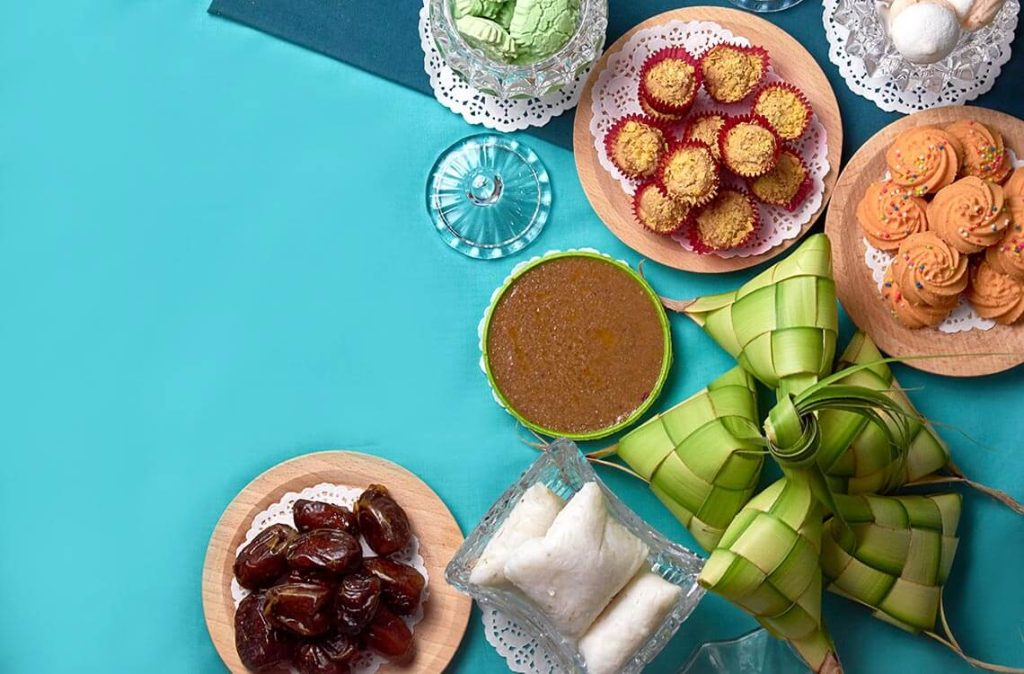Ramadan is around the corner, and Hari Raya will be here before we know it!
If you or someone you know will be pregnant this Raya, this piece is for you.
Previously, we’ve talked about foods that you should definitely avoid during pregnancy.
And we’ve also covered some foods to avoid during Chinese New Year.
This time, we’re covering those you should watch out for during Eid—or as it is referred to endearingly by us locals, Hari Raya.
Hari Raya Foods to Eat in Moderation While Expecting
While almost all Raya foods are safe to eat, here are a few that you may want to consume in moderation. For your health as well as your baby’s.
Rendang
Eid is not complete without the iconic Malay rendang (in all its regional variations).
But rendang is also quite a decadent and rich food. Made with creamy coconut milk and fried in lots of oil.
Unfortunately, this also makes it potentially unhealthy for pregnant mothers who should be watching their fat and sodium content.
Rendang is known for its seasonings and this does include a fair amount of salt. So, be sure to eat in moderation.
Lemang
When it comes to high-carb, high-fat Raya foods, lemang gets first place.
Decadent, delicious and mouth-watering, lemang is made from glutinous rice and coconut milk.
This means pregnant mummies should take extra precaution with this dish.
Remember to eat them in moderation.
Satay
A tip when eating satay for pregnant mums is to take out the fatty bits.
While this is actually the part that makes satay extra decadent, it’s not so good for pregnant mum’s cholesterol levels. We’re talking pure animal fat here, not plant-derived oils.
Saturated fats such as those found in animal fat are inflammatory.
The satay peanut sauce is also quite heavy in oils, so that should be enjoyed in moderation as well.
Kuih
Almost all types of Raya kuih have these four main ingredients: flour, butter, eggs and sugar.
Only the extra flavourings, toppings and decorations are different.
But all in all, Malay kuih are safe to eat in moderation.
There may be some concern over pineapple tarts. But as we explained in this article, the myth of pineapples causing miscarriage has been debunked by science a long time ago.
However, beware of the deep fried ones like Rempeyek, which is a particularly fatty food.
Bubur
Muslims enjoy plenty different kinds of bubur during Raya.
The most popular ones contain a mix of coconut oil, sugar, and some sort of legume or grain (usually mung beans or glutinous rice).
While it’s okay to indulge, be sure to do so in moderation. Glutinous rice porridges are notorious for being high in carbs.
Cendol
While occasionally served during Raya, cendol remains a popular beverage during this time of year.
There’s some myth that says grass jelly (cincau) is too cooling and can cause a miscarriage. But there’s no scientific evidence to support this claim.
So drink all the grass jelly you want, mums—in moderation, of course.
Hence, it’s not the grass jelly that’s the main concern when it comes to cendol.
It is among the other ingredients.
Cendol has tonnes of palm sugar and coconut milk.
Indulge in Moderation This Hari Raya, Mummies
Celebrating Raya without regrets requires conscious effort, especially for expectant mothers.
While it may be tempting to indulge in all the delicious foods and drinks during the festive season, pregnant women need to be mindful of their health and the health of their growing baby.
Additionally, pregnant women should focus on consuming nutritious foods that provide the essential nutrients needed for the baby’s growth and development.
By being cautious and mindful, expectant mothers can enjoy the Raya celebrations while keeping themselves and their baby safe and healthy.
For more insightful stories and fun recipes, stay tuned to Motherhood Story!
